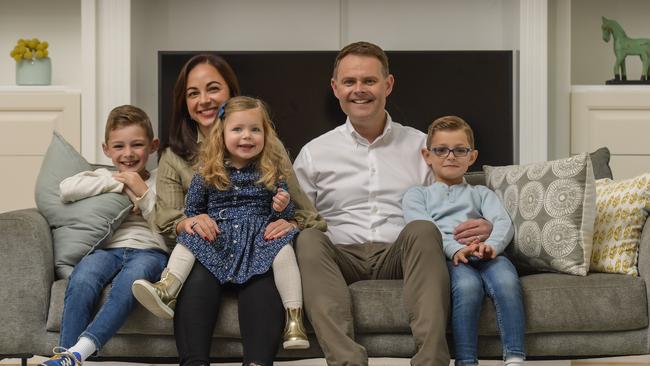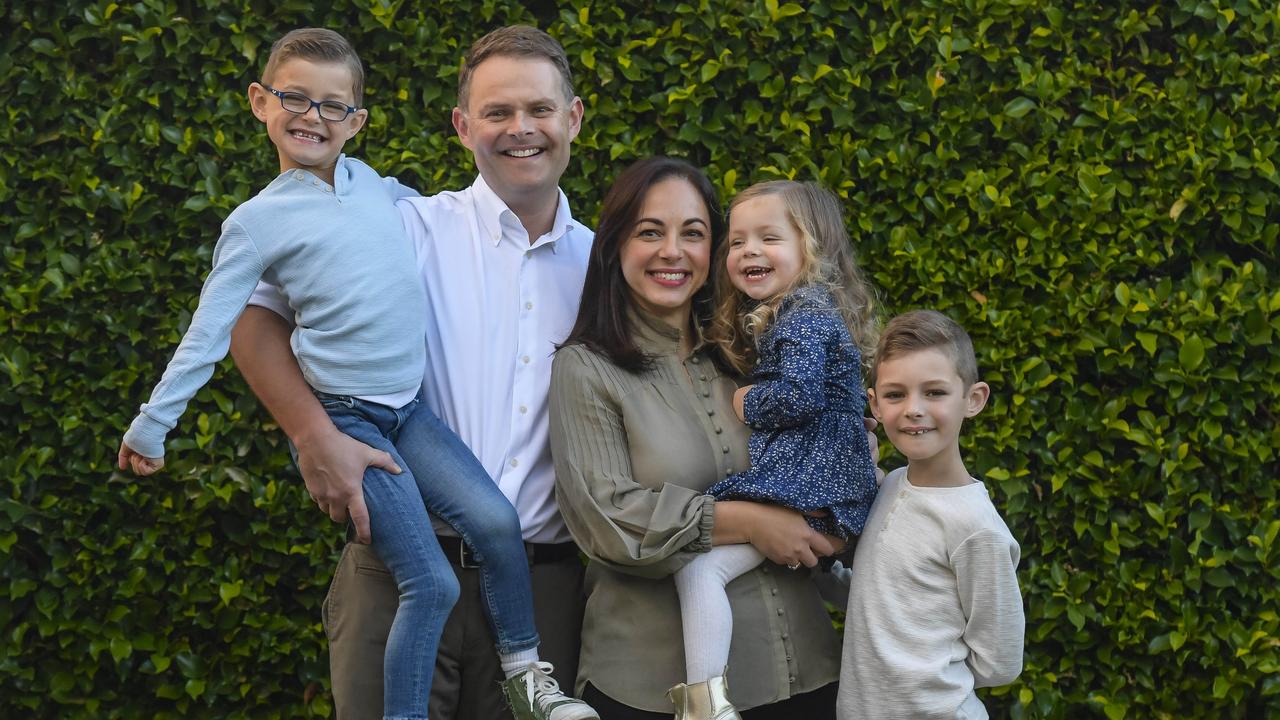SA State Budget 2024: Government to spend extra $2.5bn on health system over the next five years
Taxpayers will pour a record amount of funding into the state’s health system in Thursday’s state budget – but an ongoing tax surge is fuelling a surplus.
State Election
Don't miss out on the headlines from State Election. Followed categories will be added to My News.
The state government will pour an extra $2.5bn into the state’s health system over the next five years in a bid to fix crippling issues of ambulance ramping and emergency department overloading.
The record spend, to be revealed in Thursday’s state budget, takes the total extra government investment in the health system to $7.1bn over the past three budgets.
It comes as ambulance ramping under Labor edges towards the 100,000 hours mark, elective surgeries are cancelled across the state and rising rates of respiratory illness threaten to further clog stressed emergency departments.
The future investment has been attributed partly to the $1.6bn required to cover increased service delivery costs, including to perform surgeries.
The figure also includes $700m to ensure the system has capacity to cope with another forecast spike in demand.
Treasurer Stephen Mullighan, set to hand down his third budget, said surging tax revenues from rising house prices have helped swell a state budget surplus by more than $150m, but debt will escalate beyond $38bn.
He insisted he will maintain the government’s election commitment to no new taxes or tax increases.
A second successive surplus of $306m in 2023-24 is almost double the $154m estimated in the mid-year budget review, handed down in December, which forecast net debt to reach $38.2bn by mid-2027.
In an interview with The Advertiser on Wednesday, Mr Mullighan said the improved budget position had been underpinned by better-than-expected GST and state tax revenues and surpluses were forecast across the four-year forward estimates.

A land tax spike from increased home sales volumes from about 45,000 to 54,000 in 2022 had dwindled, but surging property values meant revenue had remained elevated.
“It’s good to get the budget back into shape and having the capacity going forward with surpluses means that in an environment where the national economy is cooling, and there may be further demands on the state budget, you’ve got capacity going forward to meet those demands,” he said.
The government has taken on debt to fund projects including $15.4bn for the Torrens to Darlington motorway and $3.2bn for the new Women’s and Children’s Hospital.
Asked if he expected state debt to escalate further, Mr Mullighan said this would increase to fund “very significant construction for both the tunnels and the hospital” and, consequently, the government was “significantly reducing the number of additional infrastructure announcements that we’re making”.

Mr Mullighan in March flagged softening an expected water bill hike, likely to be announced in late June, by deepening state debt by hundreds of millions of dollars fund urgently needed connections to major outer suburban housing developments.
But he told The Advertiser on Wednesday the budget was “reasonably mute” on water, with an expectation that costs would be “better informed” by SA Water bills and capital expenditure being set by an Essential Services Commission final determination in late June.
He confirmed speculation the budget would add to the state’s commitment to workforce training for the AUKUS nuclear-powered submarine construction at Osborne Naval Shipyard but did not elaborate on details.
Opposition Leader David Speirs said the budget must address five key areas: cost-of-living, housing affordability, health, crime and safety and regional roads.
He said the government has “benefited hugely” from increased revenues – including from the collection of stamp duty, land tax and payroll tax – and should use that money to alleviate cost-of-living pressures.
“We would like to see some of that revenue distributed back to households through stamp duty relief going a bit further than what the government have announced,” he said.
“We would certainly like to see significant relief on payroll tax ... and of course we would like to see significant additional spending right across the health system.”





